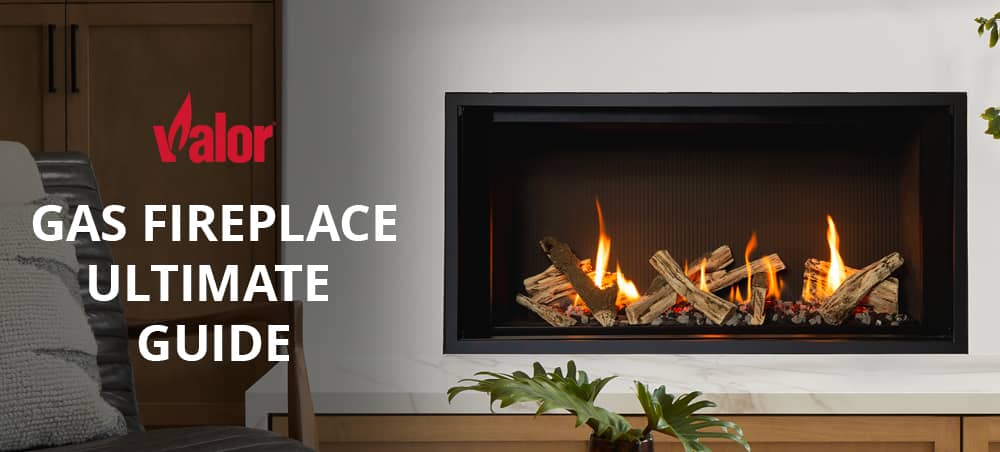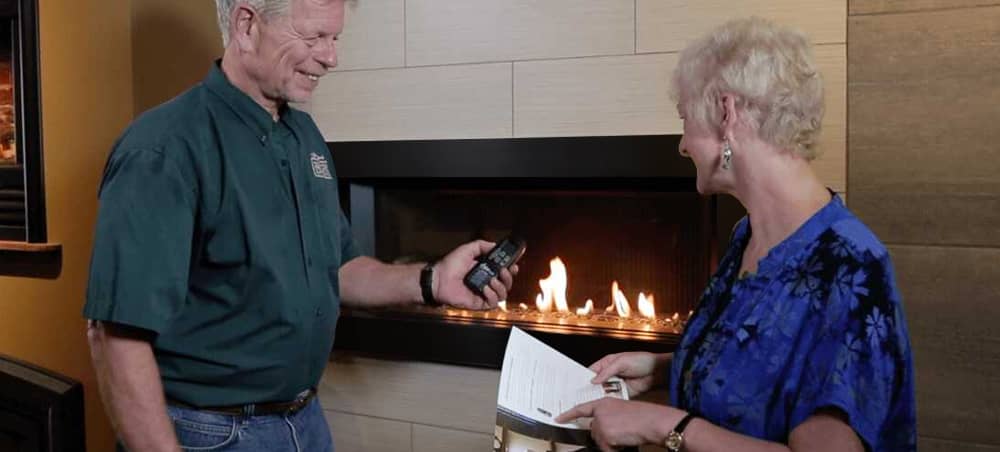Home > Fireplace Blog > Gas vs Electric Fireplace: Comparison Guide
A fireplace adds warmth and comfort to your home, but choosing between a gas or electric option can be a big decision. To help make the process easier, we’ve created this gas vs electric fireplace comparison guide, so you can find the one that best meets your needs.
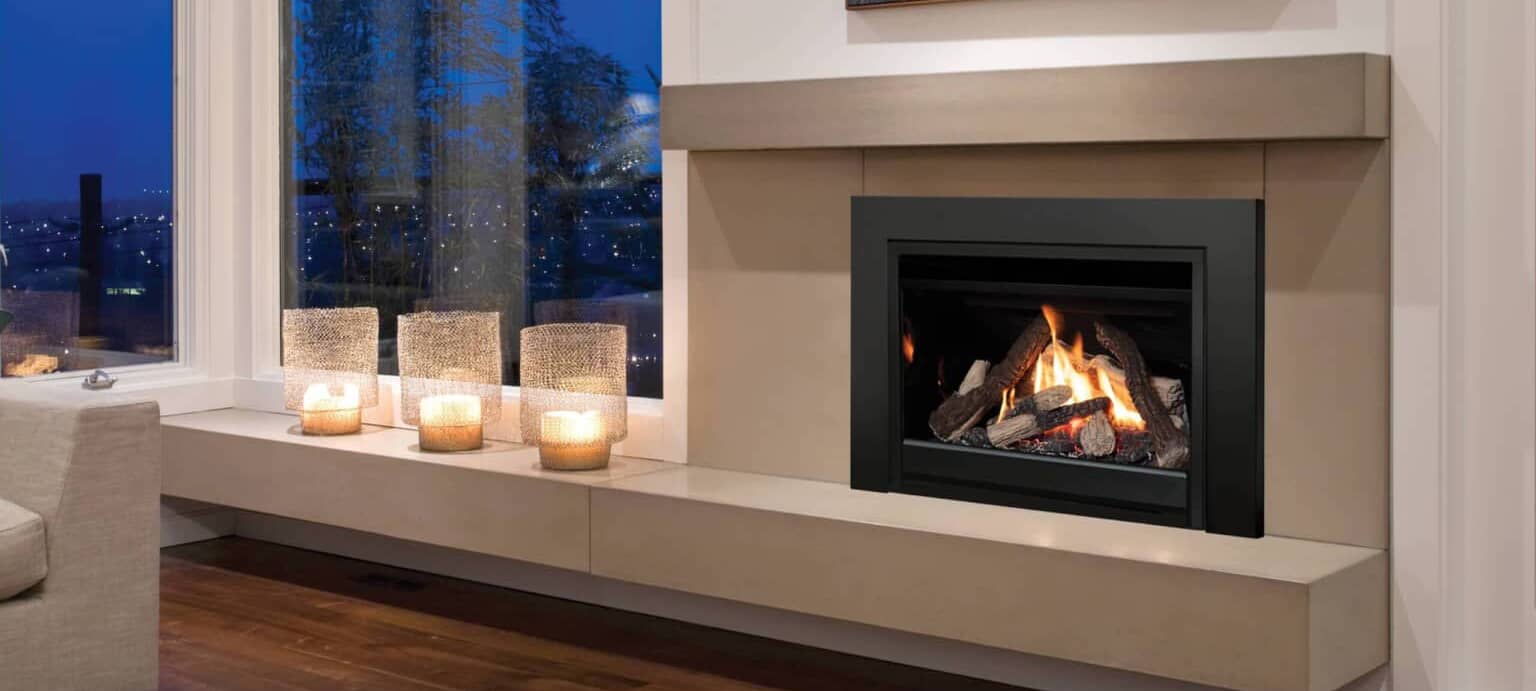
Heat Output and Efficiency
Energy Efficiency and fireplace heat output are important factors when deciding between electricity and gas fireplaces.
Gas Fireplace
Regarding a gas fireplace (ventless and vented), the BTU's (British Thermal Units) are higher than those of electric fireplaces. The BTU generated is between 20,000 and 40,000 per hour. Due to the higher BTU, there is more power, which equals a more steady, consistent heat and realistic flames. A gas fireplace is an excellent choice for heating large areas of the home.
Electric Fireplace
On the other hand, electric fireplace BTU's generate between 3,000 and 10,000 per hour, which implies a lower heat output. Consequently, the heat does not reach as many square feet as a gas fireplace.
Electric fireplaces may have lower heat outputs than other types of fireplaces. However, they can convert nearly all input energy to heat, making them highly energy efficient. They are also the best for small spaces and rooms to help cut out the chill, especially in winter.
Best For Heat Output and Efficiency: Gas Fireplace
Gas fireplaces are the best for heat output and efficiency due to their higher BTU's and capability to heat larger homes.
For a deeper comparison of heat output, efficiency, and other features, download our Gas vs Electric Fireplaces Comparison.

Installation and Setup
When considering a home upgrade such as a fireplace, installation is crucial before deciding what fireplace is best for you and your home. For detailed installation guides and additional resources, visit our Installation Manuals and Resources page.
Gas Fireplace
Installing a gas fireplace will be more complex and cost more than an electric unit. However, once installed, you'll have a long-term home heating solution. A gas fireplace will also require a gas line within the home and may need a chimney, depending on the type of fireplace (direct vent, ventless, etc.).
Electric Fireplace
As for an electric fireplace, it is easier to install and is more and can be completed without a professional installer. You will also have a choice of fireplace styles, such as wall-mounted units or stand-alone fireplaces. An electric fireplace won't require any venting, a chimney, or combustible fuel. Also, double-check your electrical load and voltage before installing an electric fireplace.
Best For Installation And Setup: Electric Fireplace
Electric fireplaces would be the best choice for installation and setup because most electric fireplaces work out of the box.
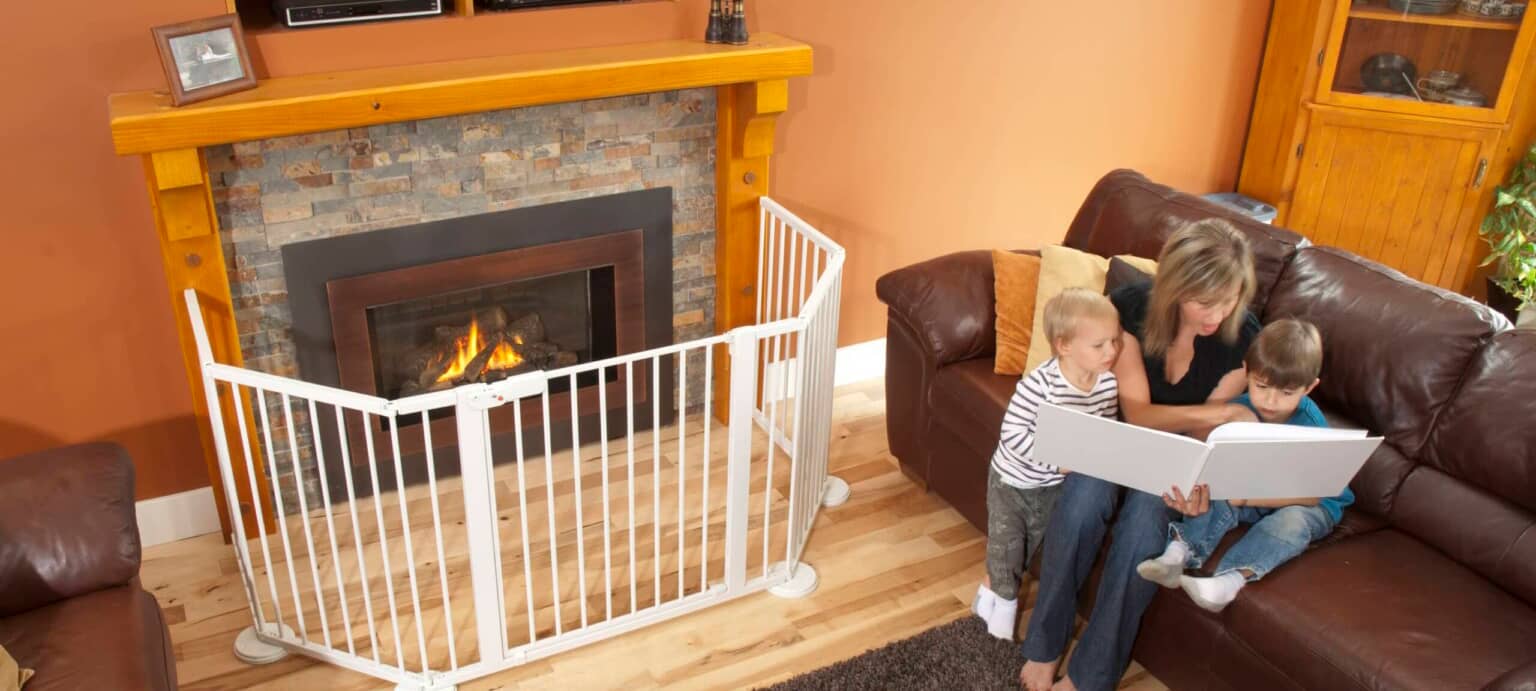
Maintenance and Safety
Maintenance and safety are essential factors to consider when choosing either fireplace option.
Gas Fireplace
A gas fireplace will require more maintenance and monthly and yearly care, from surface cleaning of the glass and surround to scheduling annual inspections to ensure it works efficiently and safely. Also, installing carbon monoxide detectors in your home and taking extra safety precautions is suggested.
Electric Fireplace
An electric fireplace requires little to no maintenance. However, surface and interior cleaning will be necessary to remove dust and debris. Although the fire risk of an electric fireplace is lower than that of other types, regular checks of the power source and electrical cords are necessary to guarantee safety.
Best for Maintenance and Safety: Electric Fireplace
Electric fireplaces would be the best choice for maintenance and safety because they do not require annual inspections and are easy to clean.
For a detailed comparison, you can download our Gas vs Electric Fireplace Safety Guide Checklist or you can visit our blog article about gas fireplace safety tips.

Appearance and Ambience
Choosing a fireplace style for your home can be the most fun part of the process, as the options are endless. Both fireplaces offer different designs and styles to fit your home's theme. For a detailed look at the different media options available, visit our Fireplace Media Options page.
Gas Fireplace
A natural gas fireplace produces authentic flickering flames that look like real flames, creating a comfortable, warm feeling in the home. The flame height can be customized in most units, giving you the feel of a traditional wood-burning fireplace. Gas fireplaces can be customized to match your style with trims, log sets, finishes, and more.
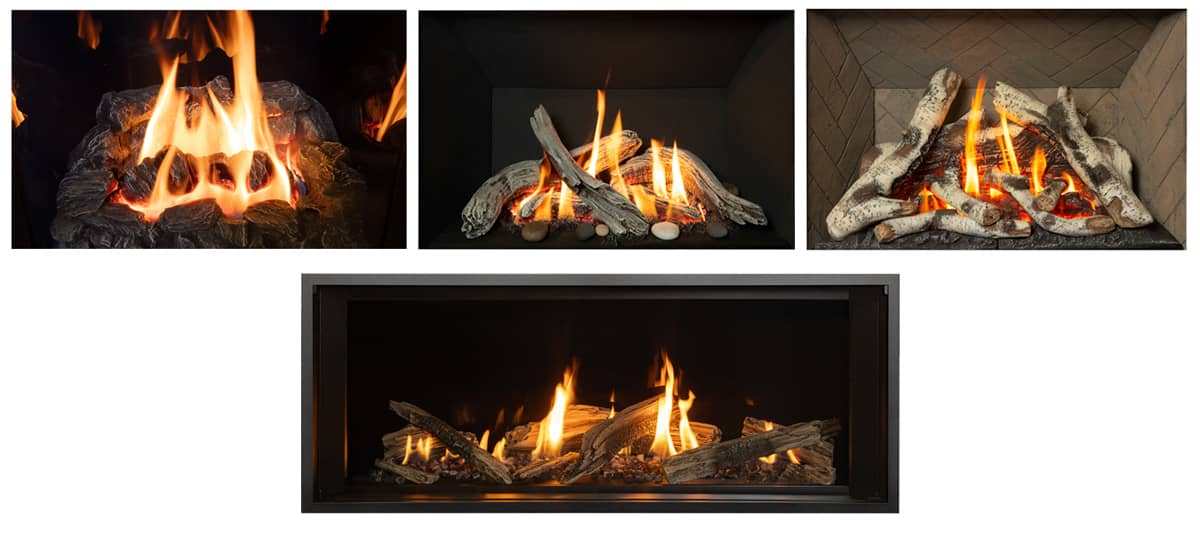
Electric Fireplace
Electric fireplaces offer similar options for designs and styles, offering a variety sure to match the look of your space. The flame from an electric fireplace will give you a sense of warmth in your home and add an extra layer of light. The heat and light of the fireplace can be customized with a remote or thermostat.
You can enjoy the flame of your fireplace without the heat. This can be useful on summer nights when you want a sense of warmth without the actual heat. Also, electric fireplaces have options to turn on or off LED lights, which can be used to set different moods in your home.
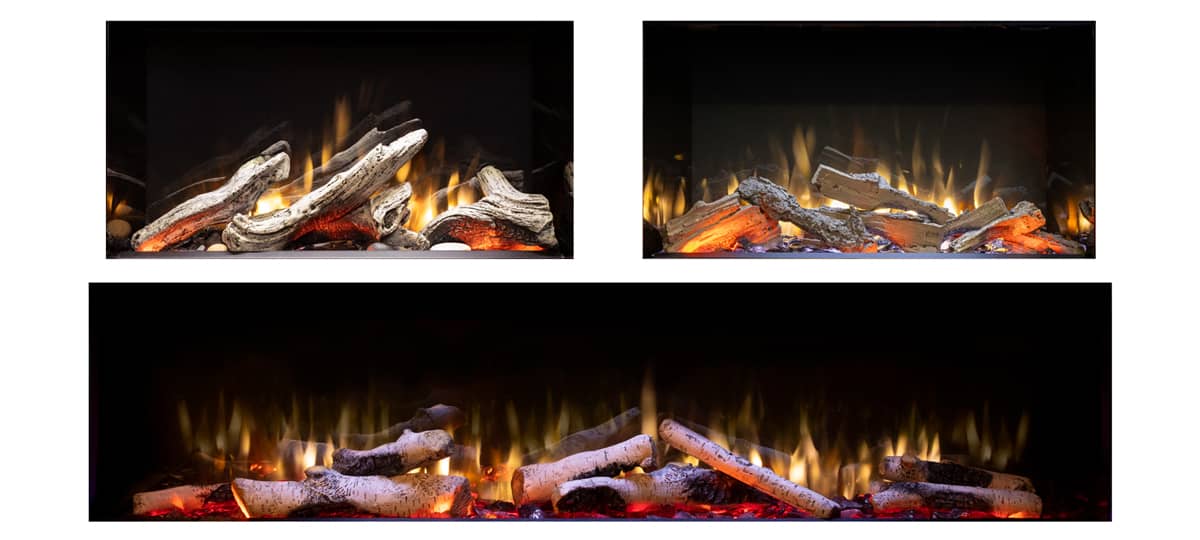
Best For Appearance and Ambience: Gas Fireplace
Gas fireplaces are the best for appearance and ambience. Their realistic flame and flame height can give the feeling of being by a traditional fireplace.
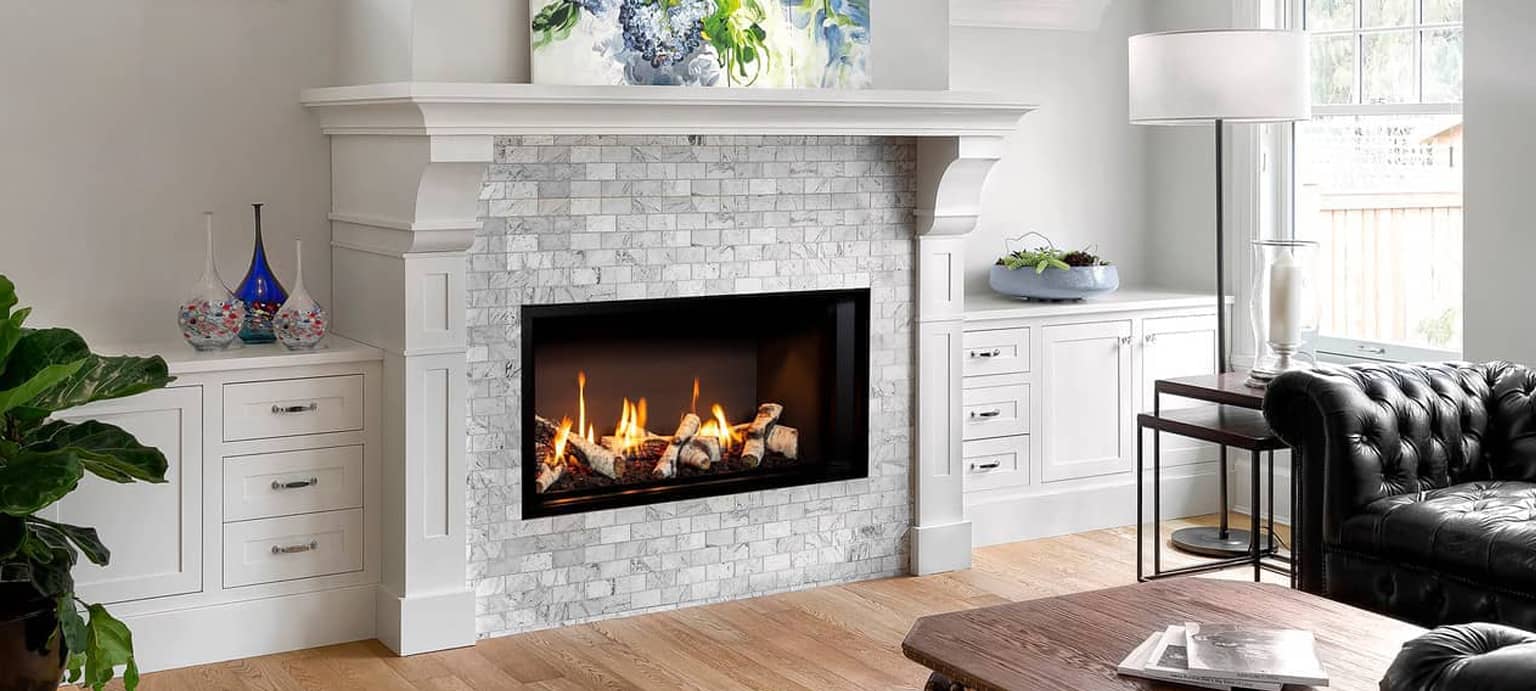
Costs
Regarding the cost, you want to ensure you choose the right fireplace for your budget and home.
Gas Fireplace
Installation costs for a gas fireplace can be more expensive than those for other types. In some cases, a new gas line may need to be installed. The range of costs to purchase and install a gas fireplace varies by region:
- Canada: $3,500 – $15,000+ CAD
- USA: $2,500 – $15,000+ USD
The cost of operating your fireplace will depend on local gas prices and how often it is used. Gas fireplaces typically provide strong heat output, making them ideal for heating larger spaces, but the initial investment can be significant.
Electric Fireplace
Electric fireplaces do not require gas, but the cost of electricity and frequency of use must be considered. Electric fireplaces are generally more affordable to install and operate compared to gas models. The range of costs to purchase and install an electric fireplace varies by region:
- Canada: $300 (store-bought electric) – $7,500+ CAD
- USA: $300 (store-bought electric) – $5,000+ USD
Electric fireplaces are easier to install, and many models can be self-installed and plugged into a standard outlet, making them a more budget-friendly option for homeowners who don’t require professional installation.
Best for Costs: Electric Fireplaces
Electric fireplaces provide the best value for money when factoring in maintenance, operation, and installation costs. Their affordability and ease of installation make them an attractive choice for many households, especially in smaller spaces or as secondary heat sources.
If you want to get an exact cost for a gas or electric fireplace, contact a Valor dealer through our Valor Dealer Lookup. Our dealers can provide detailed pricing and help you find the perfect fireplace for your home.

Lifespan
The lifespan of gas and electric fireplaces varies depending on which one you choose.
Gas Fireplace
As for lifespan, you can expect a gas fireplace to last roughly 20–25 years with occasion part replacements and an annual inspection.
Electric Fireplace
The lifespan of an electric fireplace is about 10–20 years, and minimal repairs and servicing should be needed. In both cases, following the manufacturer's instructions for care and maintenance can help increase the lifespan of your fireplace.
Best For Lifespan: Gas Fireplace
The best fireplace lifespan would be gas fireplaces. Gas fireplaces last, on average, 20–25 years.
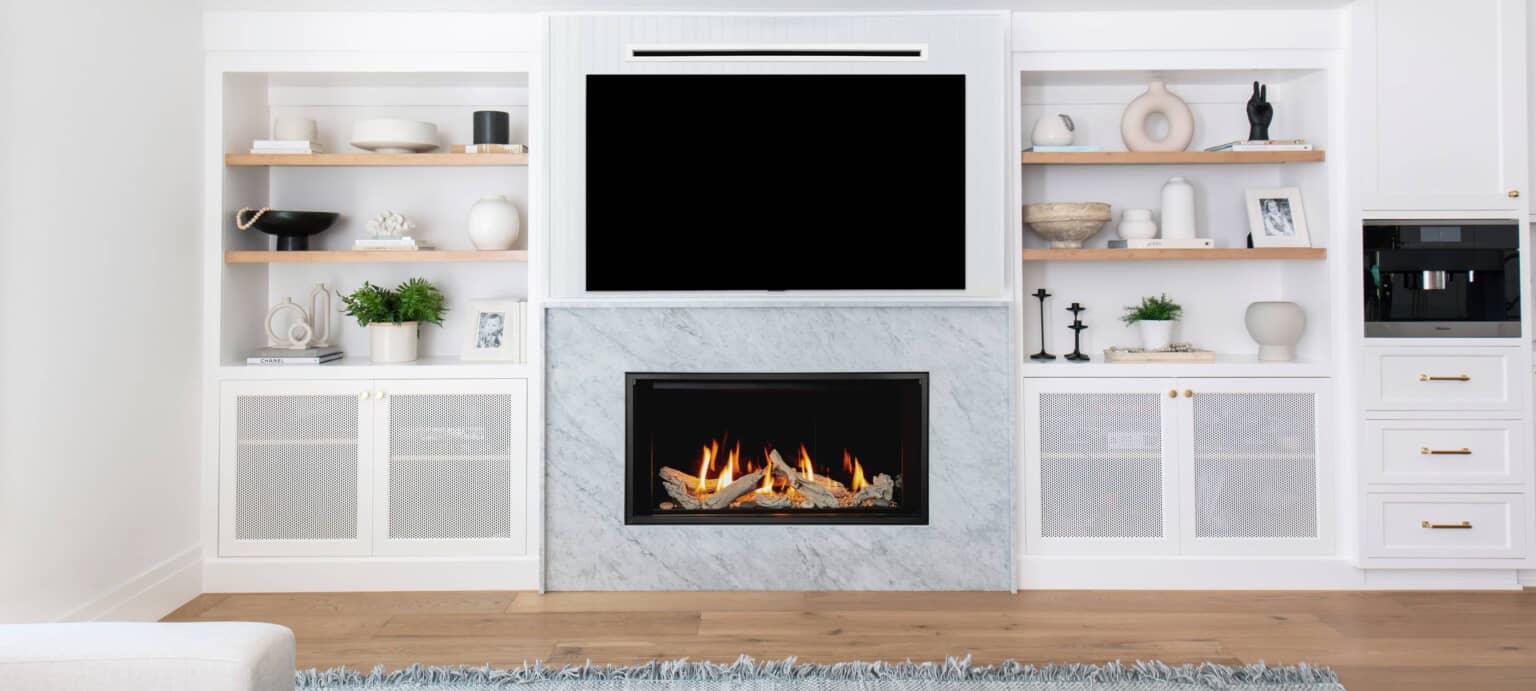
Finding the Best Fireplace
Choose a Gas Fireplace If:
A gas fireplace is an excellent choice if you're looking for a long-term, consistent heat source that can provide radiant heat throughout your home. While installation costs and maintenance may exist, you will have realistic flickering flames that keep your entire family warm no matter the season.
Choose an Electric Fireplace If:
If you are looking for a simple installation to provide heat and warmth to your household, an electric fireplace is a wonderful choice. While your electric fireplace has a slightly shorter life space, the installation and upkeep costs are minimal. In most cases, an electric fireplace can be installed without a professional.
In conclusion, selecting the right fireplace for your home comes down to personal preferences and practical considerations. This gas vs electric fireplace comparison guide is designed to help simplify the decision-making process, ensuring you choose the option that best aligns with your heating needs, budget, and style.
Table of Contents

